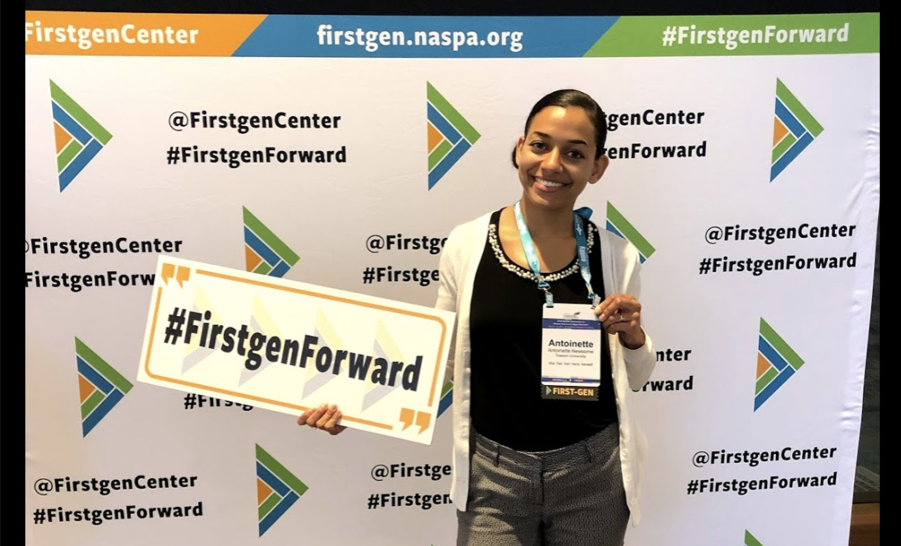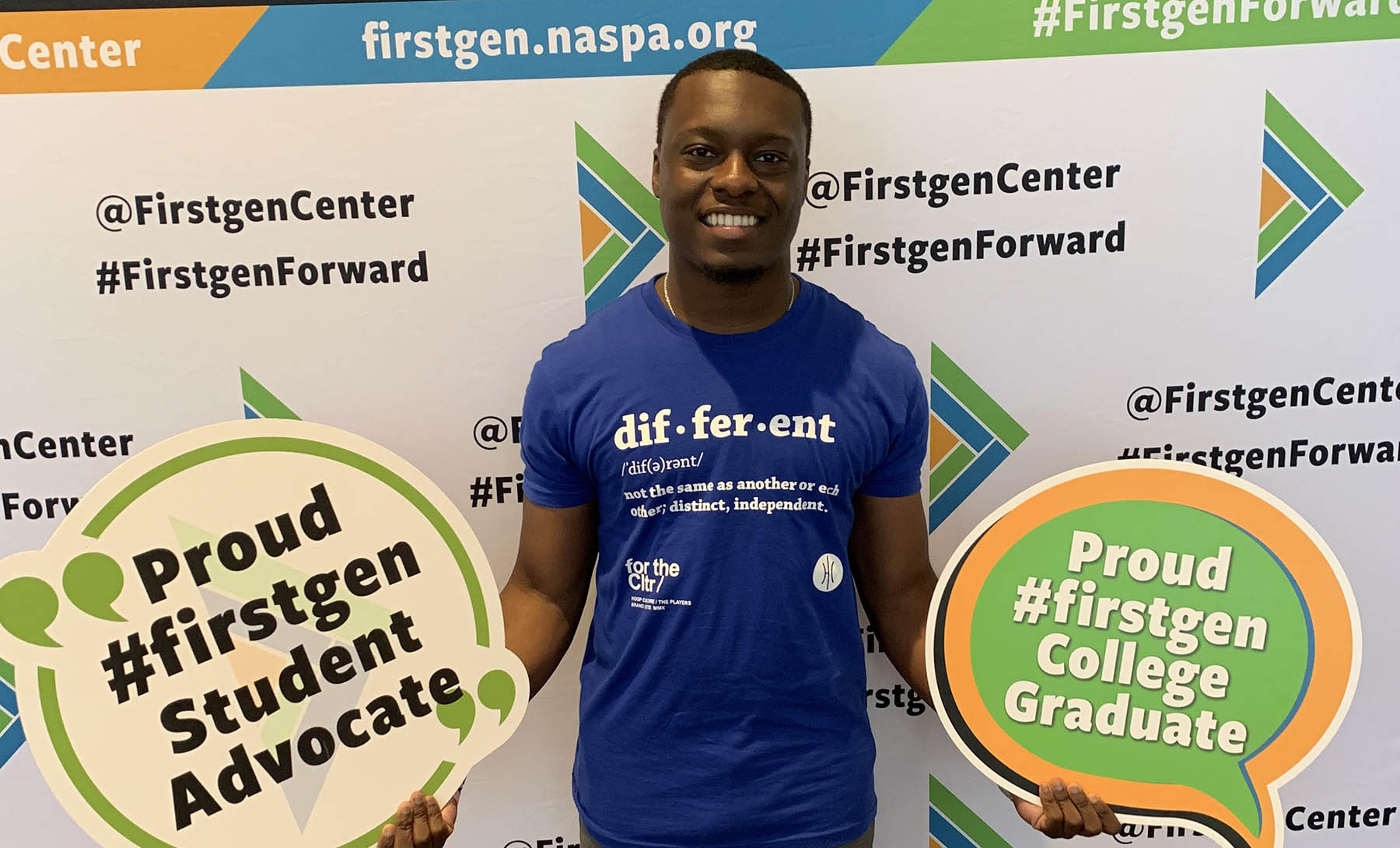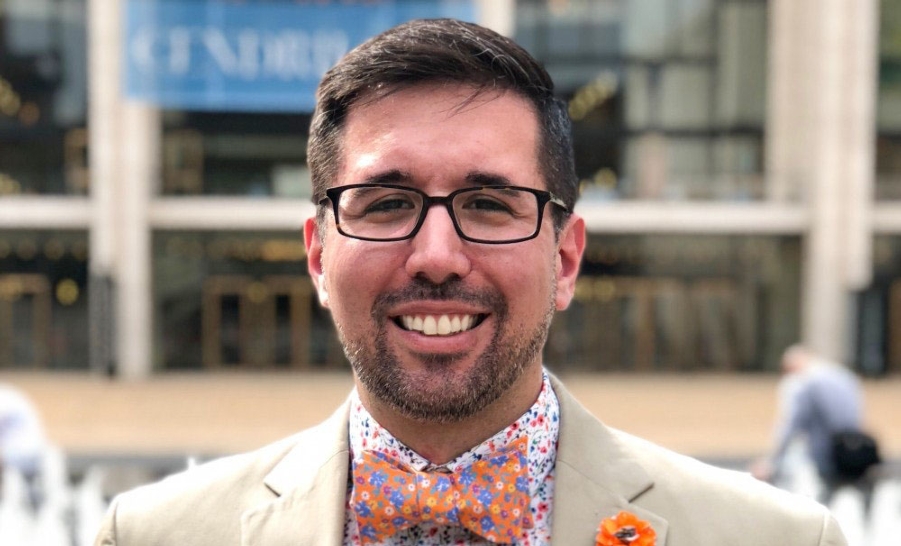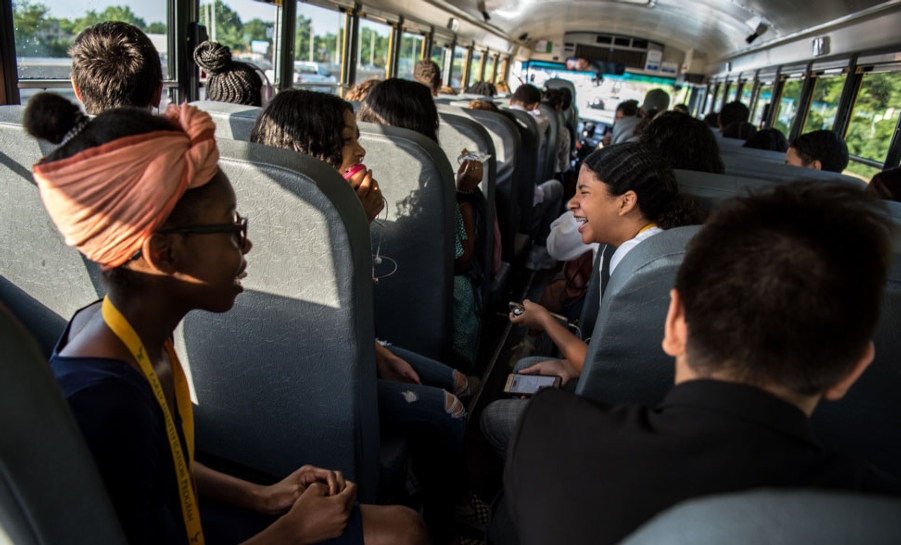Preparing Black First-generation Students for Graduate School Success
Antoinette Newsome, M.A. & Kurt Turnier, M.S., University of Maryland, Baltimore County & Towson University / FirstGen Forward / September 02, 2020

Serving as one of the primary gateways to upward social mobility1, higher education is highly sought after by many despite the inequities that disproportionately impact marginalized communities and their outcomes. Specifically, Black first-generation2 college students experience various hardships, including unfamiliarity with campus services, college readiness, familial pressure to do well, and the hidden curriculum3, while navigating educational environments not designed with them in mind. On the graduate level, 60.9 percent of students identify as first-generation4; however, it is difficult to know how many of those first-generation students identify as Black. With an increase in first-generation students gaining access to higher education, minimal research engages Black first-generation students specifically. As Black first-generation student affairs professionals, we share our perspectives on this reality and highlight the need for greater focus on the experiences of those who share our identities. Emphasizing the struggle of navigating higher education’s bureaucracy, the authors discuss the challenge of preparing for grad school as a Black first-gen student.
Our Stories
In our first entry-level positions in student affairs, we had many conversations during which we reflected on what led us to pursue graduate education as Black first-generation college students. These conversations revealed similarities in our educational experiences. Growing up as the youngest of 11 children in a low-income environment, I viewed education as a way out of my current circumstances. Education served as an opportunity to provide for and give back to my family. Therefore, attending a graduate program over nine hours away from my family was a temporary risk for long-term gain.

For Kurt and I, family considerations factored heavily into our decisions about graduate school. Without programs geared toward supporting underrepresented students like the NASPA Undergraduate Fellows Program (NUFP) and the McNair Scholars Program, we would have encountered difficulties similar to those we encountered during our undergraduate experiences. These programs were influential in minimizing barriers that often discourage underrepresented students from pursuing a graduate education.
Benefits of NUFP and the McNair Scholars Program
The NUFP program is a semi-structured mentoring program for undergraduate students wishing to explore and better understand the fields of student affairs and higher education. As NUFP participants, we learned the importance of mentorship and experienced working in student affairs with marginalized identities. The skills we developed during this program served us well beyond our undergraduate experience. Kurt’s NUFP experience taught him how to succeed in his first year of graduate school by initiating and seeking out mentoring relationships and assistantships.

As Black, first-generation students who knew we wanted to further our educations, we relied heavily on NUFP and the McNair program. Our undergraduate experiences fueled our passion to provide similar opportunities to our own students. To this end, we established and strengthened the NUFP program at Towson University to support marginalized students interested in student affairs. Our experiences ultimately taught us that without the support of mentors and engaging in programs with those who share our identities, we would have once again found ourselves navigating the graduate school admissions process alone.
Preparing Future Black First-Generation Graduate Students
Our experiences illuminate what higher education stakeholders and practitioners need to know about the experiences of Black first-generation college students. As practitioners, we must first begin by enhancing the soft and hard skills of Black first-generation students with an asset-based approach. This population must understand the significance of their identity and the extent to which they hold a wealth of experiences, despite their marginalized status, that prepares them for the world. Furthermore, we must encourage engagement and relationship building with faculty throughout students’ undergraduate careers. Faculty connections provide students with knowledge needed for a less intimidating graduate school application process and should continue throughout the graduate school experience. Coaching students on how their life experiences are linked to skills such as relationship building and networking is a critical shift we must make as higher education stakeholders.

Community is even more critical during this period of heightened awareness of systematic oppression and racial injustice. Therefore, thinking beyond a “good” program is necessary to meet the unique needs of Black first-generation students. Preparing Black first-generation college students for a graduate education requires exposure to new experiences, enhancing of skills, and connections in the field with those who truly understand their backgrounds. These are integral factors to ensure post-completion success for Black first-generation students as they continue to pave the way and inspire others!
Footnotes
1. Espinosa, L. L., Turk, M. K., Taylor, M. & Chessman, H. M. (2019). Race and Ethnicity in Higher Education: A Status Report. Washington, DC: American Council on Education.
2. As defined by TRiO programs, first-generation college students are individuals whose parents did not obtain a baccalaureate degree. For students from single-parent homes, first-generation status is determined by the educational attainment of the only parent who resides with and provides support for the student (Higher Education Act Amendments, 1998).
3. Pitre, C. C., & Pitre, P. (2009). Increasing underrepresented high school students' college transitions and achievements. NASSP Bulletin, 93(2), 96-110 & Blackwell, E., & Pinder, P. (2014). What are the motivational factors of first-generation minority college students who overcome their family histories to pursue higher education? College Student Journal, 48(1), 45-56.
4. Nevill, S.C., and Chen, X. (2007). The Path Through Graduate School: A Longitudinal Examination 10 Years After Bachelor’s Degree (NCES 2007-162). U.S. Department of Education. Washington, DC: National Center for Education Statistics.





